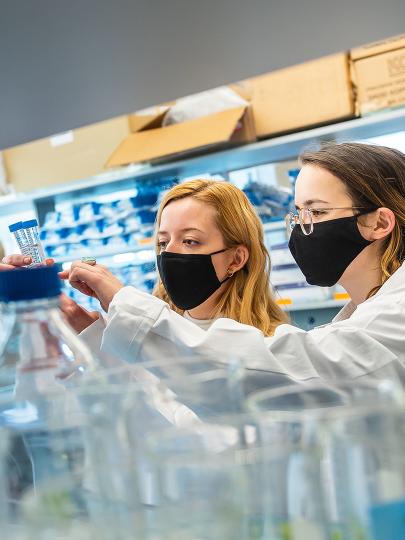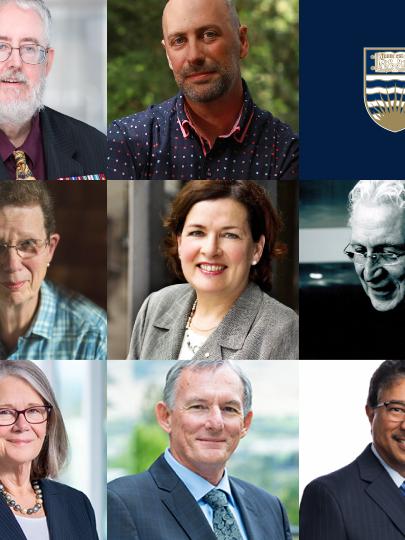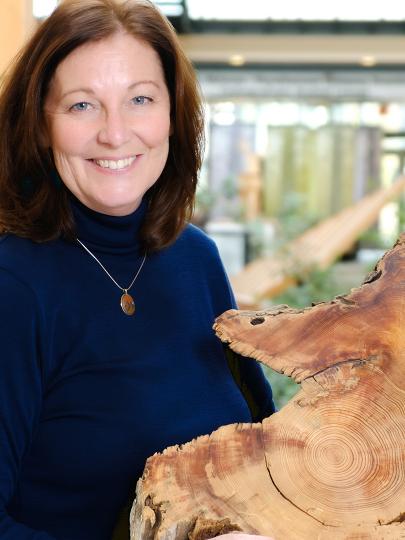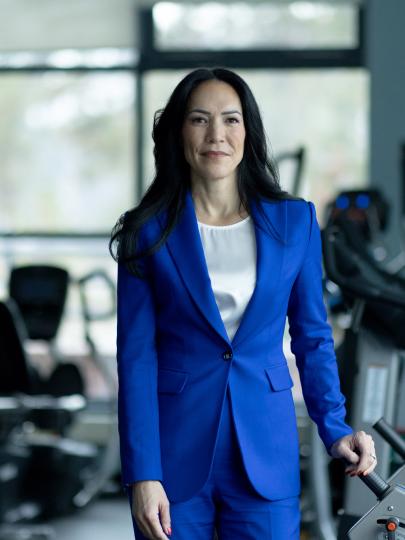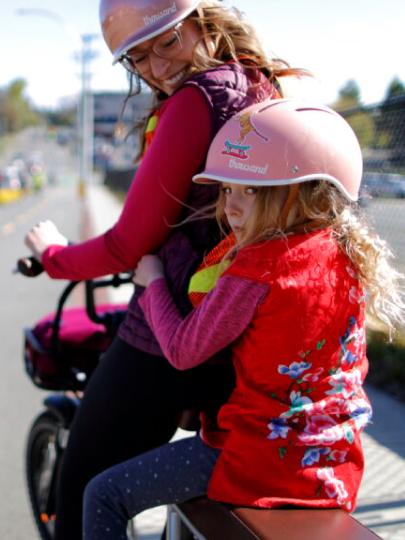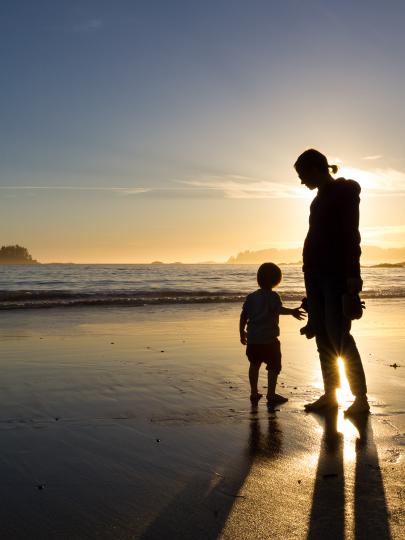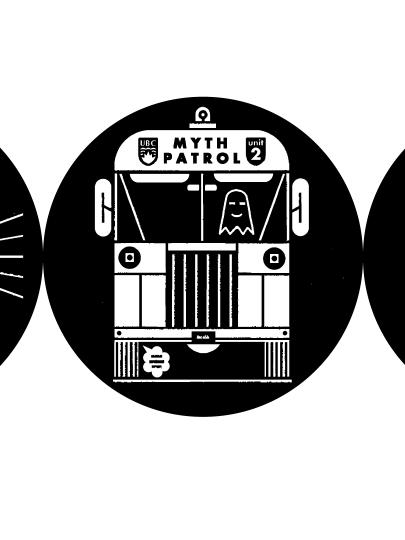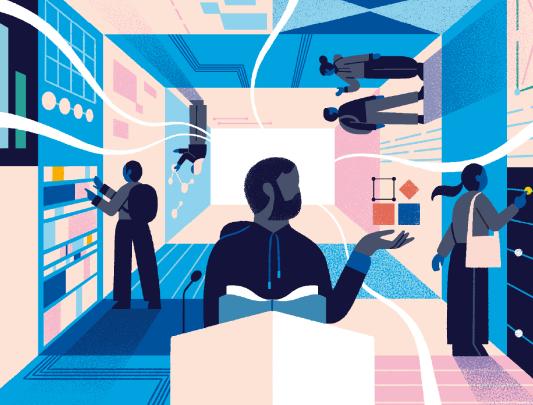"Thriving for the long term": Sustainability done simply
Three UBC experts share simple yet effective ways for taking care of the planet.
“Sustainability is about thriving for the long term,” says Dr. Jiaying Zhao, an associate professor in the Department of Psychology at UBC and a Canada Research Chair in Behavioural Sustainability. “It's about planning for the long term — not just for now — and making sure that future generations have it better than we do now.”
Sustainability, in other words, is not solely about the environment: “It’s about finances: can we afford to live well in the future? It’s about our own wellbeing: are we going to continue to be happy? It’s about social sustainability: can we grow as humanity on earth?”
Zhao's vision of a sustainable future is one that is not only greener, but also more equitable — and it's one that will likely resonate with us all. Indeed, many of us are trying to do what we can to make this vision a reality. Yet incorporating sustainable actions into our lives can feel overwhelming.
These are challenging times. With COVID-related burnout and the pressures of inflation as just two examples, life can feel difficult enough without factoring the environment into our actions. Worse still, it can feel like our individual actions will never have enough impact to address the scale and severity of the global climate crisis.
But there’s hope: every day at UBC, researchers are imagining new and inventive ways to combat the climate crisis. According to the 2023 Quacquarelli Symonds (QS) World University Rankings: Sustainability, UBC ranks third in the world out of 700 institutions in terms of overall impact, measured by its “ability to tackle the world’s greatest environmental, social and governance (ESG) challenges.”
I spoke with several of the researchers tackling these challenges in order to figure out how we can incorporate more sustainable practices into our lives. While they emphasized the fact that broad, systems-level change is necessary, they also pointed to ways in which we can each do our part.
Crucially, they showed that a more sustainable way of life doesn’t necessarily have to be costly or time-intensive. In fact, Dr. Hamish van der Ven, a UBC alum (BA’03, MA’06) and an assistant professor in the Faculty of Forestry, argues that “the most effective things a person can do to reduce their environmental impact don’t require them to spend money.”
So, here are a few simple ways to sustain our planet that even the most time- or cash-strapped person can pursue.
Doing diet differently
The food we eat is a major factor in our overall environmental impact. The consumption of red meat, in particular, is a leading cause of deforestation and heightened greenhouse gas production. According to the David Suzuki Foundation, global meat and dairy production accounts for a substantial 18% of all greenhouse gases emitted.
Zhao suggests that tweaking our diets to incorporate more plants and less meat is a simple yet effective way to reduce our environmental impact. Moreover, she notes that “fruits and vegetables and plants are often cheaper than meats.” The takeaway: swapping that steak out for some tofu will have a positive effect on both the planet and your wallet — a win-win!

If you're tempted, however, to switch over to meat alternatives like Beyond Meat products, take note: it might not be better for the environment. According to Dr. Kai Chan, a professor in UBC's Institute for Resources, Environment and Sustainability, “when you do that, you're taking a product that is really intensive in terms of greenhouse gases and environmental impacts, and you're replacing it with a processed food that is also high in the same. Most artificial meats are produced from monoculture-raised industrial crops.” Monoculture, or the growing of a single crop in an area, can cause a host of issues including soil degradation and a higher susceptibility to pests. Additionally, he argues that a meatless diet can lead to a shortage of key nutrients like leucine and isoleucine, which the body needs to maintain muscle mass and produce red blood cells.
Instead, Chan advocates for “a balanced diet, perhaps including meat produced on pastures using regenerative farming.” While he acknowledges that this approach is more expensive, he says that he uses the platform Meatme, which delivers boxes of sustainably farmed meat to your door.
With all of our food purchases, van der Ven reminds us to be wary of “greenwashing” — a form of marketing which claims, sometimes dubiously, that products are environmentally friendly. Having written a book on the topic in 2019, he advises that we “look for products that carry a credible, third-party sustainability certification such as USDA organic, EnergyStar, Fairtrade, and be wary of vague language like ‘natural’ or ‘eco-friendly.’”
The ITC Standards Map, the world’s largest database for sustainability standards, is a good way for consumers to compare and contrast different certification options.
Wasting less, saving more
Not only does what we eat make a difference on the planet's health, what we throw away matters too. According to a 2019 report by former UBC student Andrea Byfuglien (MA'20), an astounding "58% of food intended for human consumption is lost or wasted" in Canada. Yet reducing the food we throw away "has huge carbon savings," says Zhao. At the same time, it "saves money too because you're not wasting money on your food."
Fortunately, there are a few easy ways to cut down on our food waste. If, like me, you find yourself forgetting about the lettuce and peppers in your fridge, try CozZo, a mobile app that logs your food purchases and recommends recipes accordingly.
If you struggle with food waste and live alone, consider finding a grocery buddy, or someone with whom you can split the purchase of perishable foods. You can even make a social event out of a weekly trip to the grocery store!
If you find yourself too tired to cook dinner after a busy day, I recommend the app Too Good To Go. Through the app, local bakeries, restaurants, and even grocery stores sell discounted food that would otherwise have been wasted.
Transportation alterations
In a 2020 article, Zhao — along with UBC researchers Dr. Simon Donner and Dr. Seth Wynes (PhD’20) — found that many people underestimate the environmental impact of air travel. In fact, one of the most impactful things we can do to live more sustainably is to fly less frequently.
So, next time you’re planning a vacation, consider sticking close to home and exploring your own region — you might just be surprised by what you find in your own “backyard.”
Travel for business purposes also makes up a substantial portion of air travel carbon emissions. With innovations in remote communication technology such as Zoom, however, it is easier than ever to conduct business online. So, if it's an option, make that meeting virtual — you’ll reduce your emissions and maybe even avoid some jet lag.
Zhao also notes that we should aim for greener transportation on a daily basis. “You can bike, you can skateboard, you can take the bus, you can walk, you can run — not having a car is the most sustainable option,” she says. Again, she notes that the most environmentally friendly options are also the most cost effective.
Of course, not everyone has equal access to public transportation and many of us don’t live in walkable cities. If you still need a car to get around, consider trying carshare apps like Turo, Modo, or whatever alternative is in your area.

Staying positive
The climate crisis can be anxiety-inducing, and social media and the news cycle can exacerbate our feelings of powerlessness. Here, Zhao recommends curating our newsfeeds to focus on the positive changes we can make in our own lives. “Follow things that are actionable,” she says, “things that you can actually do and…that bring you joy.”
van der Ven goes a step further, saying that “not only is big tech physically detrimental to the environment, it provides a deluge of negative (mis)information that both distracts and demotivates from taking action. So basically, if you want to save the environment, spend less time on TikTok and Twitter and more time outdoors talking to people.”
Based on screen time stats alone, many of us could probably stand to benefit from curbing our social media usage on the whole. But if TikTok or Twitter is an enduring source of positivity and joy in your life, drastically cutting back on your usage is not entirely necessary. In fact, Zhao advises that we move away from a “sacrificial mindset” in our approach to the climate crisis. “A lot of people think that in order to save humanity from climate change, we need to give up a lot of things” she says, “but that will just make us miserable.”
Instead, she advocates for “happy climate action,” or things that increase our happiness while reducing our environmental impact. She points to activities like biking, which can simultaneously improve our mood and the environment.
Signalling change
At the same time, it must be stressed that individual actions alone will not be enough to address the severity of the climate crisis. As Chan argues in this article, our actions must also link up to changes at the systemic level. In bridging the gap between the individual and the broader system, he observes that “one of the most powerful instruments in your toolbox is to signal clearly what practices you support and which you don’t through ‘social-signalling’ actions.”
According to Chan, these “social-signalling” actions — which can be as simple as sharing social media posts on Earth Day or riding a bike to work — serve as demonstrations of our values. Over time and with enough volume, these actions can help shape public opinions and norms on important issues like climate action.
In particular, Chan points to the practice of “creative mending.” Repairing your own clothes conspicuously, he says, demonstrates your position — that “I believe in a world where we keep our stuff and fix it, and that I can make my clothing beautiful with a little input of my time.”
So, instead of throwing out that pair of jeans, pick up a needle and some thread! If you’ve never tried your hand at sewing, let me recommend this easy-to-follow YouTube series.

Above all, van der Ven argues that “the most important thing individuals can do is collaborate with other individuals.” For those who have the time, van der Ven recommends “volunteering with your local environmental NGO, joining a political campaign, or participating in a neighbourhood greening initiative.”
For those with jam-packed schedules, Chan also notes the effectiveness of letter-writing campaigns. Many environmental organizations like Greenpeace and Stand.Earth already have templates that can be easily filled out. By setting aside even ten minutes of your daily commute, you can take a stand on key climate issues.
The ballot box is another crucial forum for creating a more sustainable planet. As beloved scientist Bill Nye recently said, “if you want to do one thing about climate change: Vote.” Come election time, look to the UBC Centre for Climate Justice and UBC Sustainability for information and public forums so that you can make a well-informed vote for earth-conscious candidates. Remember that climate policy is not just a federal issue — we can also exercise our right to vote for a greener city and province.
However you pursue sustainability in your life, let’s encourage and support one another. As we work together to build a greener, more equitable future, we can look to the inspiring work of researchers at UBC for guidance.




